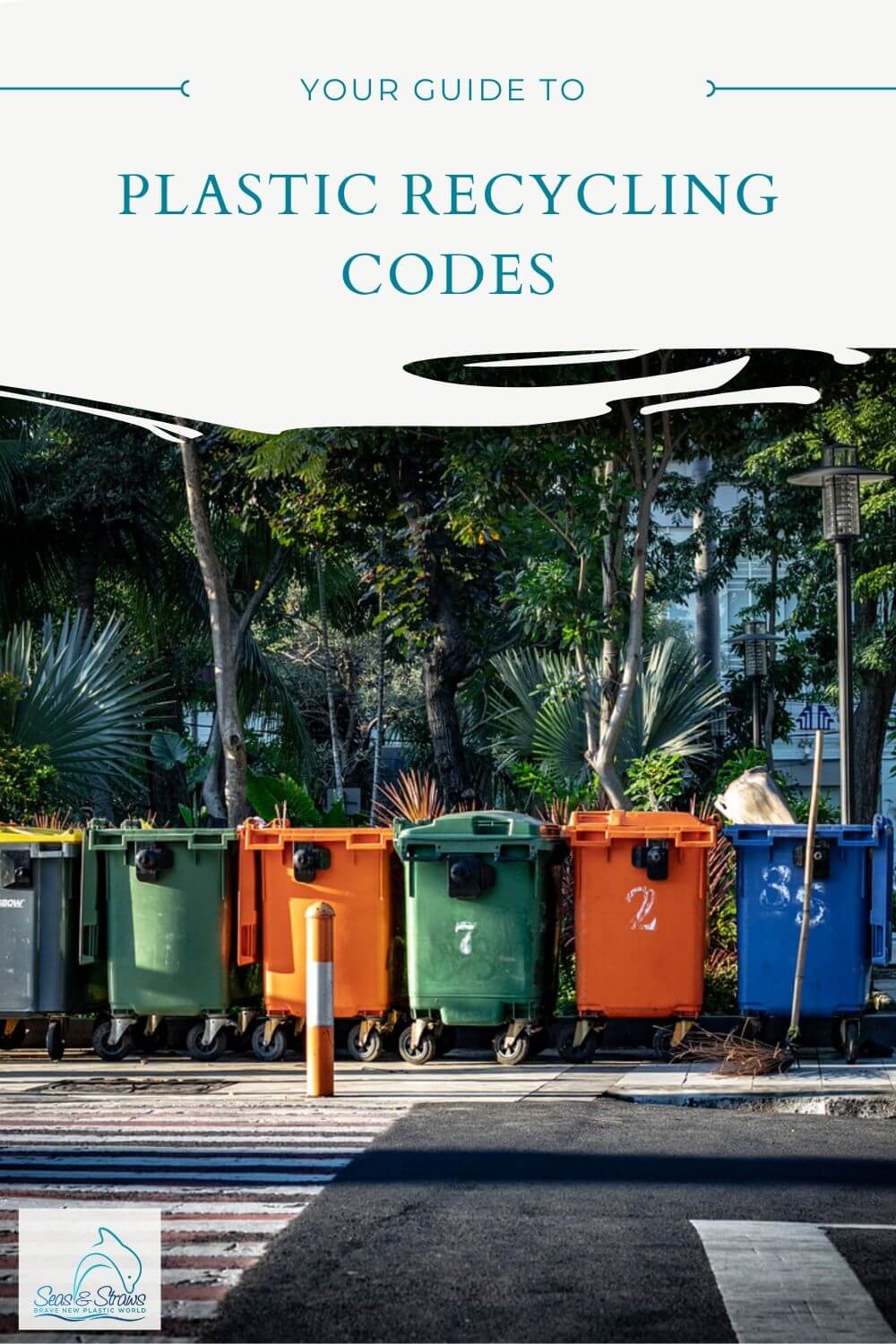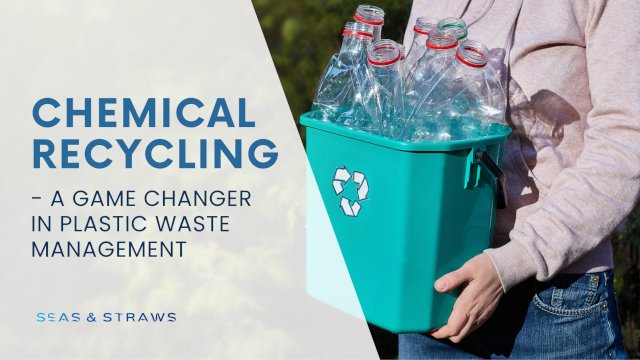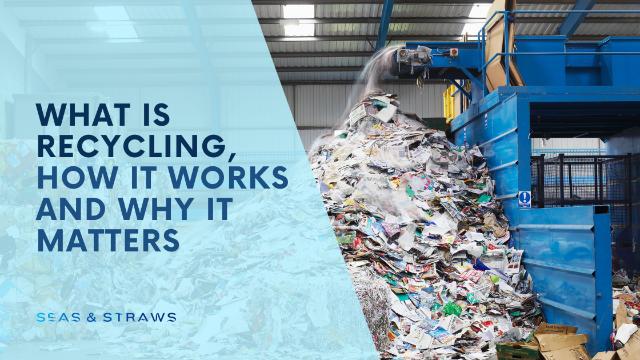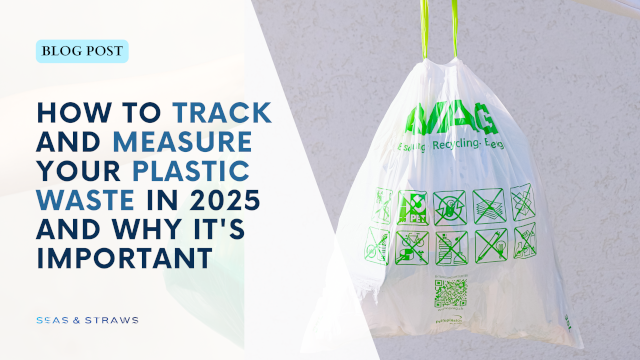- Home
- Plastic at Home
- Plastic Recycling Codes
- Frequently Asked Questions on Recycling
Frequently Asked Questions on Recycling
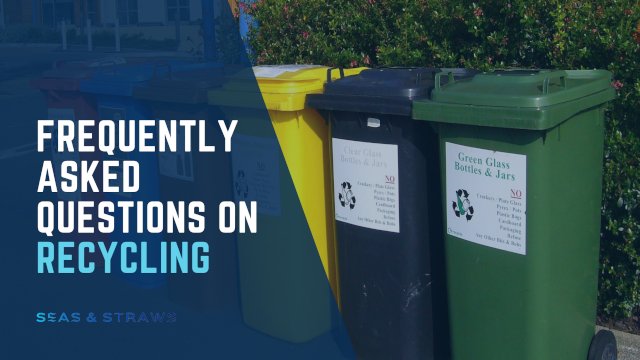
Recycling stands as a fundamental pillar of environmental stewardship, yet deciphering the labyrinth of bins and blue arrows often leaves us befuddled. One moment, we confidently toss a container into the recycling bin, only to find ourselves later perplexed by a seemingly abstract depiction on the lid resembling more of a Picasso creation than a symbol for plastic bottle disposal.
This comprehensive guide of frequently asked questions on recycling aims not only to challenge your recycling acumen but also to offer detailed insights that will empower you to become a recycling champion. Through clear explanations and practical examples, you'll gain a deeper understanding of recycling practices, equipping you with the knowledge needed to make informed and impactful decisions in your sustainability journey.
Q1. What are the three R's of waste management?
The holy trinity of waste management is Reduce, Reuse, Recycle.
- Reduce: Minimize the amount of waste you generate in the first place. Buy less, choose reusable items, and avoid single-use products.
- Reuse: Give items a second life! Donate clothes, repurpose jars, or find creative uses for old objects.
- Recycle: When reduction and reuse aren't possible, recycle approved materials to be transformed into new products.
Q2. Why is recycling important?
Recycling offers a multitude of benefits for our planet and ourselves:
- Resource Conservation: Manufacturing products from scratch depletes natural resources like trees (paper) or bauxite ore (aluminium). Recycling uses existing materials, reducing the need for virgin resource extraction.
- Pollution Reduction: Extracting and processing raw materials often generates air and water pollution. Recycling often requires less energy and creates less pollution compared to virgin material production.
- Landfill Savings: Landfills are overflowing with waste, taking up valuable space and potentially leaching harmful chemicals into the environment. Recycling diverts materials from landfills, extending their lifespan.
Q3. Can all plastic items be recycled in your curbside bin?
Unfortunately, not all plastics are created equal. Check your local recycling guidelines to see which plastics are accepted in your area. Recycling programs often use numbers (1-7) or resin codes to identify accepted plastics. Common household recyclables include plastic bottles, jugs, and containers with these designated numbers.
Different plastics have varying properties and require specific recycling processes. Mixing incompatible plastics can contaminate the entire batch, rendering it unusable.
Q4. Is it okay to toss greasy pizza boxes in the recycling bin?
Hold on to that greasy box! Most recycling programs won't accept heavily soiled cardboard because it can contaminate the entire load. Scrape off any large food scraps and consider composting the leftover cardboard if your program allows it.
Q5. What happens to glass after it's recycled?
Glass has a fantastic advantage - it's endlessly recyclable! Used glass is crushed into "cullet", which is then melted and molded into new glass bottles, jars, and even fiberglass insulation.
Q6. Is aluminium foil recyclable?
Yes! Clean aluminium foil is generally accepted in curbside recycling programs. Remember to remove any food residue before tossing it in.
Q7. What's the best way to clean food containers before recycling them?
A quick rinse with water to remove any leftover food particles is sufficient. Avoid using excessive water or harsh chemicals. Extremely greasy containers might not be recyclable, so check your local guidelines.
Q8. Should you crush aluminium cans before recycling them?
Crushing aluminium cans saves space in recycling trucks, making the collection process more efficient. However, most recycling facilities can handle uncrushed cans as well.
Q9. Is it better to recycle or compost food scraps?
While both recycling and composting are great practices, composting food scraps is generally preferable. Food scraps decompose naturally in a compost bin, creating nutrient-rich soil amendment for your garden. Recycling uses energy to process materials, while composting offers a more natural, closed-loop system.
Q10. What can be done with recycled electronics?
E-waste (electronic waste) contains valuable materials like gold, copper, and rare earth elements. Recycling facilities dismantle electronic devices, separating the materials for use in new electronics or other products.
Q11. Why is it important to check local recycling guidelines?
Recycling programs can vary significantly by location. Some areas might accept specific plastics or paper products that others don't. Checking your local guidelines ensures you're recycling correctly and avoiding contamination.
Q12. What are some benefits of buying products made from recycled materials?
Choosing products made from recycled materials closes the loop on resource use. It reduces demand for virgin resources, promotes a circular economy, and supports businesses committed to sustainability.
Q13. Is it true that recycling plastic uses a lot of energy?
Yes, recycling some plastics can be energy-intensive, particularly those with complex sorting requirements. However, the energy used for recycling is typically less than the energy required to manufacture new plastic from scratch. Additionally, technological advancements are constantly improving the efficiency of plastic recycling processes.
Q14. What are some everyday items that people often forget to recycle?
Many recyclable items end up in the trash simply because people are unaware. Here are some common culprits:
- Cardboard tubes: From toilet paper rolls to paper towel cores, these can be recycled in most curbside programs.
- Juice boxes: These are often made from composite materials, including cardboard and aluminum. Check your local guidelines for proper recycling procedures.
- Metal lids: Lids from food containers, glass jars, and coffee cans are usually recyclable metal.
- Egg cartons: Depending on your location, egg cartons might be made from recycled paper or molded pulp, both of which are often recyclable.
Q15: How to dispose of medical supplies?
Disposing of medical supplies and equipment as well as expired or unused medications requires caution. However, this does not mean that unused medications or equipment should always be thrown away. The National Council on Aging (NCOA) Adviser has created a comprehensive guide, How to Manage Unused Medical Supplies, on how to handle these medications and supplies without wasting them.
Q16. How can communities encourage more recycling?
Several strategies can promote a culture of recycling within communities:
- Clear Guidelines: Easily accessible information on what can and cannot be recycled is crucial. This could involve printed materials, online resources, or even apps.
- Bin Accessibility: Having conveniently located and clearly marked recycling bins throughout neighborhoods and public spaces encourages participation.
- Educational Programs: Organizing workshops, outreach programs, and school initiatives can educate residents on the importance of recycling and proper sorting techniques.
Q17. What is the difference between bioplastics and traditional plastics?
Bioplastics are derived from renewable resources like plant starches or corn oil, unlike traditional plastics made from petroleum. While some bioplastics are biodegradable, not all are. Always check the specific type of bioplastic and its disposal instructions.
Q18. What are some creative ways to reuse old items instead of throwing them away?
Recycling isn't the only way to be eco-friendly! Here are some ideas to extend the life of your belongings:
- Repurpose glass jars: Use them for storage, DIY projects, or even homemade candles.
- Turn old clothes into cleaning cloths: Cut up old t-shirts or worn-out towels for a sustainable cleaning solution.
- Get crafty with cardboard boxes: Cardboard is perfect for creating sturdy containers, furniture pieces, or even children's toys.
Q19. How can schools promote a culture of recycling among students?
Schools can play a vital role in fostering responsible waste management habits:
- Implement recycling programs: Set up designated bins for paper, plastic, and other recyclables within classrooms and common areas.
- Hold educational workshops: Educate students about the benefits of recycling and the different types of recyclable materials.
- Create recycling challenges: Organize fun competitions within the school to encourage participation and raise awareness.
Q20. What are some future innovations that could improve recycling processes?
Technological advancements are constantly evolving the recycling landscape. Here are some promising areas of development:
- Advanced sorting technologies: AI-powered sorting systems can identify and separate materials more efficiently, reducing contamination.
- Chemical recycling: This technique breaks down plastic molecules into their basic building blocks, allowing them to be used to create new virgin-quality plastic.
Q21. What small changes can individuals make in their daily lives to become better recyclers?
Becoming a recycling champion starts with small but impactful actions:
- Learn proper sorting techniques: Take the time to understand what your local program accepts and how to prepare materials for recycling.
- Avoid contamination: Rinsing containers and keeping recyclables clean prevents contamination of the entire batch.
- Reduce overall waste generation: The best waste is the waste we don't create! Choose reusable products, buy in bulk to minimize packaging, and avoid single-use items whenever possible.
By understanding the "whys" and "hows" of recycling, we can all contribute to a healthier planet. Remember, every recycled item is a victory for our environment.
Resources
https://www.epa.gov/recycle/how-do-i-recycle-common-recyclables
https://www.biopak.com/au/resources/recycling-vs-composting#:~:text=We
https://www.epa.gov/recycle/frequent-questions-recycling
https://www.linkedin.com/pulse/future-recycling-new-technologies-innovations/
